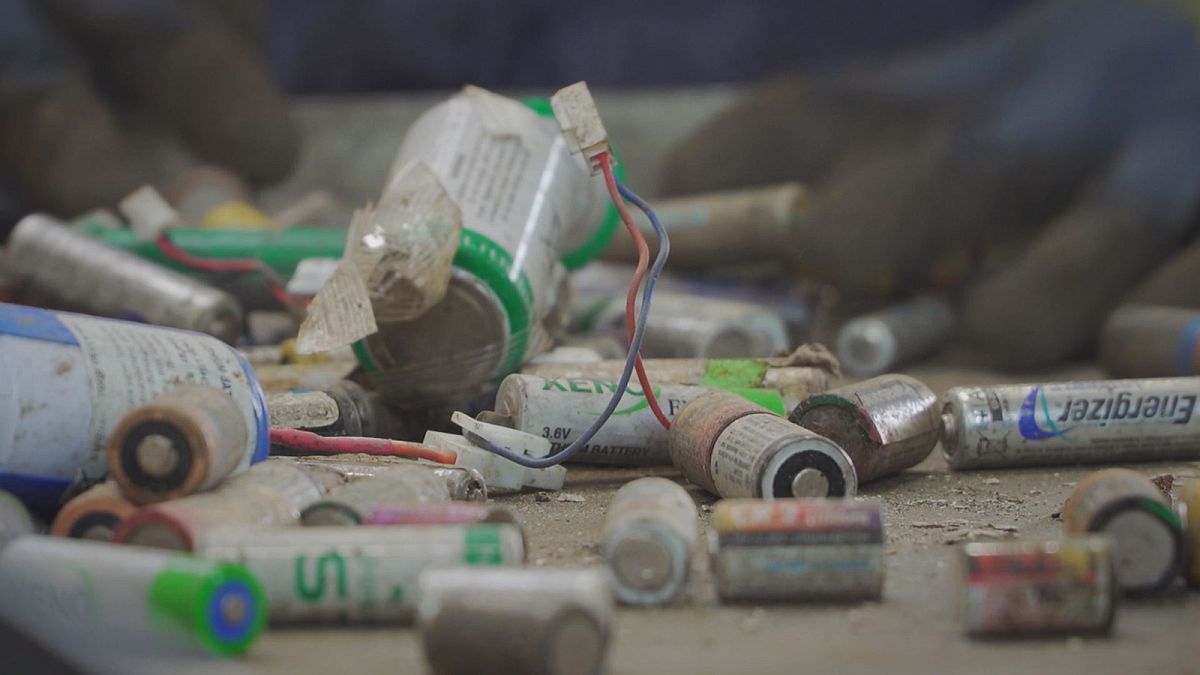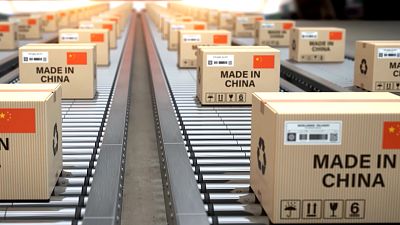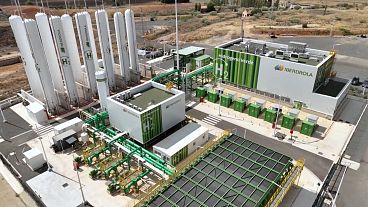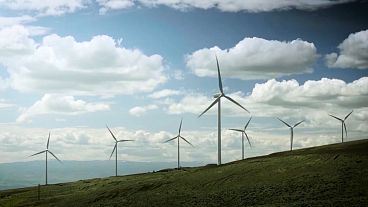'Business Planet' travelled to Germany to discover a unique initiative opening the way for new business models and towards a more circular economy
A key challenge facing entrepreneurs is how to recycle more and recycle better, notably when it comes to electrical and electronic waste.
'Business Planet' reporter Serge Rombi travelled to Germany to discover a unique initiative opening the way for new business models, towards a more circular economy.
He began his trip in Stuttgart where he met Matthias Huisken, Managing Director Europe for "Ifixit".
The firm is a partner in a European project called CloseWEEE. So what is it all about?
"The aim of the CloseWEEE project is to develop new solutions for processing and recycling e-waste," Matthias explained.
"This is crucial because, in Europe alone, we have been generating more than 12 million tons, just last year."
Serge then headed for Krefeld near Dusseldorf and a firm that specialises in the recycling of batteries and accumulators.
ACCUREC is also one of the 12 partners of the CloseWEEE project. Its role has been to define new processes to better highlight the value of the dozens of different materials found in batteries.
Significant research has been carried out and this SME has developed a unique technique which can recover two materials that were not previously recyclable separately - lithium and graphite.
"Today, the state of the art is with the lithium ion batteries that we recycle - nickel and copper and cobalt," said ACCUREC CEO Reiner Weyhe.
"But the other two specific elements are valuable and are not recovered anywhere in the world. "
Recovering lithium and graphite is a very important step because these raw materials are rare, more and more used, and more and more expensive. Their price has multiplied by 3 in a year and a half.
The idea of the CloseWEEE project is to anticipate and secure a growing demand for recycled materials.
"The support we get in this kind of RD project is not help. It is a necessity, in order to boost develpments in their very early stage," said Reiner Weyhe.
The CloseWEEE project is funded by the European Commission. The aim is also to help manufacturers meet recycling requirements under a European directive.
"The goal is to develop new business models, to help establish a circular economy in Europe," explained Ifixit's Matthias Huisken.
He is also anxious to get the message across to the public, telling 'Business Planet' while holding an object:
“For example, to recover a part like this, a smartphone mainboard, during recycling, you will need information about where to find it in a product. We have built an online platform that helps recyclers to do exactly that.”
---------------------------------------------------------------------------------------------------------
RAW MATERIALS & RECYCLING
The demand for raw materials is increasing. But industry all around the world needs the same materials, so some may be expensive or in short supply.
For example, our smartphones or computers contain more than 60 different chemical elements, including a number of scarce metals.
Many of these precious materials can be recycled and used again. Producing goods using recycled materials is often less energy intensive than using virgin materials.
Horizon 2020, the biggest EU Research and Innovation programme, dedicates nearly €600 million to boost innovation in the EU raw materials sector.
One of the EU funded projects in this area is CloseWEEE. It aims to develop new technologies to recycle waste coming from electric and electronic equipment (WEEE), such as phones or batteries.




